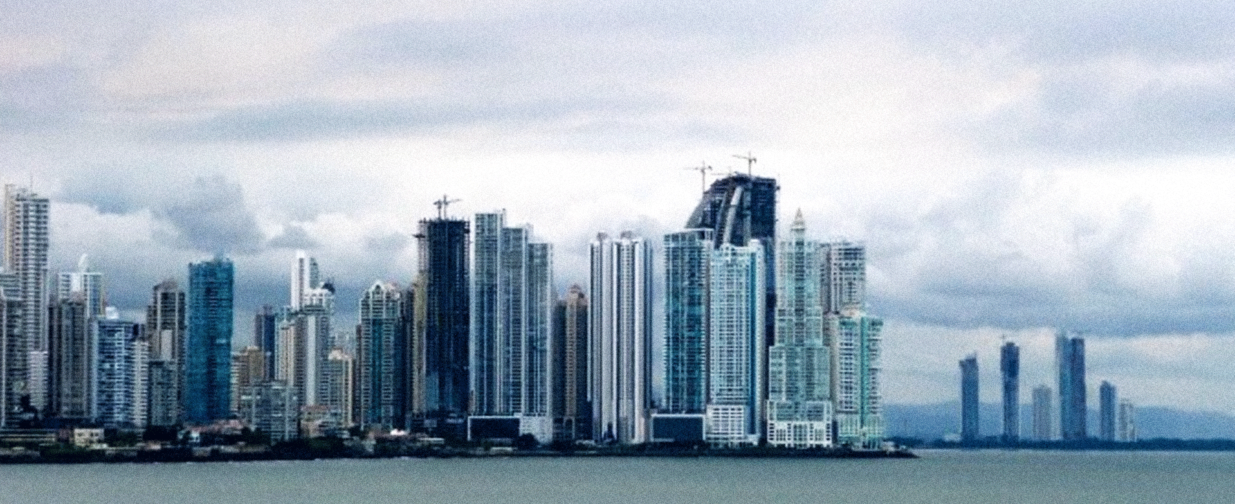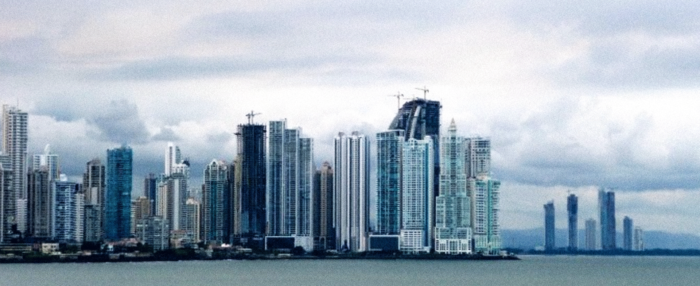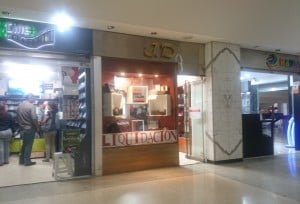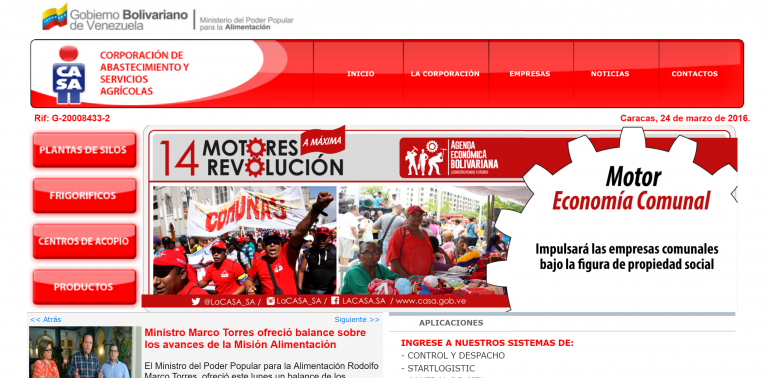

Sometimes intermediary, others, supplier, but always omnipresent, this Venezuelan is one of the most active and unknown person in the registration of companies in tax havens of the Caribbean. Many of these companies were incorporated ad hoc to do business with Corporación Casa, a food import state entity.
|
Getting your Trinity Audio player ready...
|
At 73 years of age, in the autumn years of a fulfilled life, as he says, Venezuelan entrepreneur Desiré David Obadía Medionies is little known by the public, though well known in Mossack Fonseca.
In an internal email of April 2008, Ramsés Owens, a lawyer and, by then, one of the most senior executives of the Panamanian law firm, urged a subordinate, "Daisy, PLEASE let's send a message like this before OBADÍA gets mad,..."
Owens then drew up a profile of the case presented by this recently attracted client, Obadía, who promises to invoice a lot with the law firm for the registration of companies, administration and other services of MF product portfolio. However, out of the blue, Obadía showed himself as demanding and grumpy. Owens recalls that last week, Obadía had visited the offices of MF in Panama. "I personally attended him. There was no other person who dared to attend him, considering his difficult and aggressive personality." But, in his defense, he says in the letter that the client is going through a difficult moment, "he is separated and in the process of divorce, and that makes him be in worse mood."
The account, in any case, represents a business opportunity. Owens explains to his co-workers at MF that Obadía's company, Escom Limited, trades raw materials "mainly to Venezuela," and sells "chicken in bulk, wheat, etc." The company must keep its papers –balance sheets, permits- up to date before the Venezuelan Customs and the regulatory entities to remain active. Hence, the mission of Mossack Fonseca, Owens concludes, is to deal with the thorns of Obadía and the delays of the Consulate of Venezuela in Panama, to prepare the necessary documents and notarize them. "The Venezuelan consulate wants to find out who is behind, but this information must be kept hidden," he instructs, "which causes additional stress. They have no choice but to speculate that he is a Panamanian, without being able to know that the person behind is actually Venezuelan."
The Venezuelan is Desiré Obadía. Since then, in 2008, when he was causing panic among the employees of MF, until 2015, he opened and managed through the Panamanian law firm at least a dozen companies in three jurisdictions: the British Virgin Islands, Panama and Belize. Only in three of them does Obadía openly appear as a shareholder or director. All three were created to sell food to an entity of the Venezuelan State, La Casa, S.A. (Corporation of Food and Agricultural Services), or sell public order equipment to government offices.
Obadía, a Sephardic of French-Moroccan origin, arrived in Venezuela at the age of 14. He completed his education in Grenada and Martinique, Caribbean islands. He brags about having travelled "three times around the world" and about his international raids. Since 1977, he has a store in the first stage of CCCT, the traditional mall in the Chuao area, in the southeast of Caracas. The store, Galerías JD, seems to have left behind its best times; the remaining merchandise - jewelers, leather goods - is in liquidation and part of its original area is now occupied by a pirate movie stand and a delicatessen sale.

With that adventurous history, it is a wonder that in 1998 Obadía decided to reinvent himself. He was an executive of large companies and an industrialist. He left manufacturing to become an importer. He put it into practice when Hugo Chávez had already gained power in Venezuela. In addition to his desire to change, the best endorsement for his new commitment was, as he admits in an interview given for this story, a politically unpolluted record. "I was an entrepreneur who had no past, neither adeco nor copeyano (AD or COPEI political party supporter), or else, because I had never worked with the Government."
He assures that in 1999, he made his first sale of anti-riot equipment to the Government. But the best was yet to come. At least, that was his expectation. Between 2001 and 2004, he changed the name of a company already constituted in 1998 to Jotec S.A., and increased its capital to almost ten million bolivars of that time (10 billion bolivars today). "I created it with that capital, using a Bandagro bonus, which the government will never pay, but which is good to use as capital of companies," Obadía said in an interview last March. "I created a strong company to sell to the government, but that company never sold anything! Why? Because I was wrong. In what sense? I did not need a national company to sell to the Government because I had to sell in bolivars, and then I had to deliver to the Central Bank the dollars of that purchase at the official rate. Nobody does that! Then I created the company in the Virgin Islands."
Indeed, in 2003, Obadía incorporated a company in the British Virgin Islands, EscomLimited. Then, he would move it to Panama, which would be the basis of his operations from April. Why? Because he would then entrust the creation and management of his legal structure to the law firm Mossack Fonseca, through its office in Florida.
Through Mossack Fonseca, Obadía registered over a dozen companies in Panama: three in 2009, three in 2011, and five in 2012. In 2014, still in the hands of MF, he created two companies in Belize. It was the year of diplomatic deadlock with the Government of Panama of former President Ricardo Martinelli, who had then helped the member of the opposition Maria Corina Machado to be part of an official delegation of the country of the isthmus to give testimony before the OAS in Washington. Obadía, feared, with justifiable reasons, that the rupture of relationships with Panama, where he had registered companies, would harm his business opportunities.
Thus, Obadía became one of the Venezuelans with the longest and most extended file in Mossack Fonseca, as evidenced by the leak that came to the newspaper Süddeutsche Zeitung in Munich, Germany, and which was accessed thanks to the project led by the International Consortium of Investigative Journalists (ICIJ). Upon reviewing the papers, which include official documents and email exchanges, it is verified that the relationship between the Venezuelan client and his Panamanian service provider, although mutually profitable, has also been strained. Obadía frequently appears objecting MF fees, complaining without reserves, he contacts employees that are not supposed to be his interlocutors, and always writes his messages in capital letters, which he justifies because of his poor eyesight, but that are interpreted in the offices of the law firm as a constant scream. In April 2014, lawyer Olga Santini, in charge of the MF office in Miami, gladly accepted the handling of the contact with Obadía to be transferred to Panama, provided that the payment of her commissions is preserved.
In addition, the communication between Mossack Fonseca and Obadía eloquently illustrates what was the main idea of ??the business structures to be built. Almost all the companies were designed to participate in contests to win import contracts with Corporación de Abastecimiento y Servicios Agrícolas La Casa S.A., the organization created by Hugo Chávez to import food products and distribute them through the Mercal network.

In 2008, started - as you can see in the electronic correspondence of MF - the business streak of Desiré Obadía with Corporación Casa, just at the beginning of the presidency in that body of the then-lieutenant, Colonel Rodolfo Marco Torres, today vice president of the Economic Area.
In August 2008, Obadía asked Mossack Fonseca for help in dealing with a Brazilian meat supplier, the Quatro Marcos meat processing plant in Sao Paulo –which, four months later, would be in default on payments -, as it required an assignment of credit through Deutsche Bank. The matter would be satisfactorily resolved and the business multiplied. In October of that same year, Obadía urged Ramsés Owens in MF to "immediately open two companies," but, he warns in the same email, "They cannot be in my name but they will be in the name of my relatives".
In effect, it would ultimately be Greenhill Group and Sanford Global, two companies incorporated in Panama. In June 2009, Obadía will have its flagship EscomLimited (created before in the Virgin Islands, but now with a capital of five million dollars) registered in the isthmus. However, he will first make sure that what he was about to do will not mean paying taxes. "You already told me that taxes are not paid in the Virgin Islands," he says in an email of January 26, 2009. "How will the tax matter be with the companies registered in Panama?" The advisers reassure him that in Panama only the profits obtained by activities carried out in its territory are taxed.
In 2012, he faces problems that he reported in an email to Rigoberto Coronado, lawyer of Mossack Fonseca. "In Corporación Casa, they realized that they have 19 companies with the same address as yours," writes Obadía to Coronado, "9 or 10 of which are mine (...) The problem is that not all of them can have the same address." MF immediately began to transfer the companies to other physical addresses and change the directors that could be repeated in the boards of several companies.
Internalizing the idea of ??losing his low public profile, Desiré Obadía granted an interview in Caracas, where he displayed unexpected openness and cordiality based on the papers of MF. He acknowledged that he has done business with Corporación Casa, and made a list, "I entered into a meat contract, another one for beans, one for corn." Each of these assignments, he confessed, reported profits close to one million dollars.
Immediately tinged that success story with a list of the setbacks and obstacles he had faced. He says, for example, that he lost money in an operation with the Brazilian food giant, Sadia. "I still had to ship a thousand tons of a contract that was for 3,000 or 5,000 tons of meat. I do not remember well. Sadia told me that they had meat available, already in port ready to dispatch. Then I assigned it a letter of credit that I had from Corporación Casa, and on top of that, they asked me for 500,000 dollars as collateral, which I did. But at that moment, they had problems with Casa for a mortadella that went bad. Then they changed the damaged mortadella of Corporación Casa for the meat they had in port and made me look bad... Then, they took six months to send me 500 tons of meet. And then they told me that the price went up, that they could not continue shipping meet to me, and they did not. They took three additional months to reimburse me the $ 500,000 I paid."
He defines his strategy of creating multiple legal entities to contract with the State as an almost probabilistic, legitimate and even necessary trick. "Let me tell you one thing, there are many envious people out there. I do not want to have a single company that has sold ten times to the Government. That gives room to speculations. On the other hand, they also do not like buying everything from the same company. I made several companies with the idea of ??obtaining contracts that sometimes I did not achieve."
He denies opening a new company in his portfolio for every possible new operation. What he has done, he accepts, is to incorporate circumstantial allies into his companies, as shareholder partners that provide capital to finance their mass imports. This is the case, for example, of company Markwell Investments, which he incorporated in 2012. A year later, he included Fabio Méndez Rico, Luis Alberto Rivas, Roberto Bobby Pocaterra and Tulio Hinestrosa, members of one of the most powerful importing groups of the last 15 years as shareholders. Together, they completed through Markwell an operation to import 30,000 metric tons of yellow corn in 2013.
In the pages of Obadía in Mossack Fonseca it is worth noting that the same group of entrepreneurs tried to do something similar through company Langton Trading. Even though the façade was different, it was again Obadía and its new partners of the group of Fabio Méndez Rico, who at the end of 2013, tried to import a shipment of rice.
The method is used several times. In November 2014, Obadía obtained an $ 80 million contract from Corporación Casa to import 10,000 metric tons of powdered milk. The Venezuelan is then associated with the financial adviser and intermediary of Canadian passport, César Duarte Chiong, whom Obadía included as a shareholder in another of his companies registered in Panama, Ivoryton, but he resigned his position on the board of directors in April 2015.
On September 3, 2009, Obadía had registered company Tradex in Panama, mirror of a homonymous company in Brazil. With 50-percent share, there is a Brazilian partner, Marcos Braun, former senior executive of Sadia. Both sought to bring meat from Brazil to Venezuela.
According to Obadía, all the last operations were never completed, either due to lack of space in the silo system and storage of Casa or due to lack of liquidity, despite the fact that they had the approval of the Government.
The formula will have its limitations. It is the case of the warning that in July 2015, the executive assistant of MF, Valery Martínez, made to Obadía, who had ordered to include Julián Martínez Mora to the board of directors of one of his companies, Sanford Global. The law firm pointed out to its client that, according to its due diligence department, Martínez Mora was Treasurer of the State Government of Cojedes (center of Venezuela). In response, Obadía said by email, "I do not know if he is the same person; he is not with me anymore.” But that did not prevent him from asking in the post scriptum, almost like a mischief," What would be the effect of having a government employee in a company? I do not plan to have any, but I would like to know. "
Martínez Mora was finance director of former governor Johnny Yánez Rangel and, based on reports of the Argentine press, he traveled at least once to Buenos Aires with Guido Antonini Wilson, the man who in August 2007 tried to bring into Argentina 800 thousand dollars in a briefcase that the government of Caracas sent to the then presidential candidate Cristina Fernández de Kirchner.
When asked about this during the interview in Caracas, Obadía said that Martínez was one of the two directors -both with activities in Cojedes- who demanded a mysterious investor at the Sanford meeting, whose name he said he did not remember, who approached him to do business together, but they did not materialize.
Martínez Mora is not the only open reference to contacts with the Government that appears in the Obadía file. In 2010, the businessman made a tour in the Dominican Republic in the name of Emprevén, the parallel company that the borderline chavista management —led until that year by Alejandro "Alito" Uzcátegui— organized to corrode Fedecámaras. Accompanied by Rosa Rodríguez, then vice president of Emprevén, during those days, he offered press statements to promote an agreement between his organization and the Dominican Council of Commerce (Consecomercio) to bring products to that island nation under the concept of Mercal. Obadía was presented as a "supplier of the Government of Venezuela".
In 2008, Obadía —who had tried to sell public order equipment to General Alcides Rondón when he was Vice Minister of Security and Interior— managed to mediate with his company Escom Limited between an international buyer, Petrocommodities, and the state-owned Carbones del Guasare, when Rondón was already listed as president of Carbozulia. The loading of the transaction was 500,000 tons of coal for the Italian market. Obadía does remember this operation, which summarizes as follows. "I was the one who join the seller with the buyer. I managed to set an interview to Petrocommodities with General Rondón, and I won a commission from there." Although, he finished saying that "The commission fell short".
Pequiven, a subsidiary of Petróleos de Venezuela, sought shelter in tax havens to legalize its association with Iranian company National Petrochemical Company, from which Veniran emerged. Although the Panamanian law firm was suspicious of the alliance between the then presidents Hugo Chávez and Mahmud Ahmadinejad, it finally solved the inconvenience to please both clients.
Leonardo González Dellán headed Banco Industrial de Venezuela (BIV) from 2002 to 2004. The papers of Mossack Fonseca reveal that, in this period, which also coincided with the establishment of the exchange control and the birth of the extinct Cadivi, he was related to overseas companies.
The last two major global investigations conducted by the International Consortium of Investigative Journalists revealed the offshore business of Eligio Cedeño, a former Venezuelan banker considered a fugitive from justice by some and politically persecuted by others. Company Cedel International Investment, owner of Bolívar Banco and Banpro, also requested the services of Mossack Fonseca to operate in the British Virgin Islands.
The name of the former head of the Venezuelan oil company in Colombia appears in the papers of Mossack Fonseca with 100% of the shares of a company created in June 2011, of which she requested to be dissolved six months later. She is unemployed since August 2015, when she was replaced by the ex-sister-in-law of President Nicolás Maduro
The so-called "insurance tsar" opened four offshore companies in a Caribbean island through the Panamanian law firm Mossack Fonseca. Corporación OFL, which consists of about 20 companies in his name, makes him one of the entrepreneurs in the insurance sector that has grown the most during the chavista government.
The ex-banker used the services of the Panamanian law firm Mossack Fonseca to register companies in tax havens while he was being tried in Venezuela by his ex-colleagues from the Stanford Group. He said he was a victim of chavism to be accepted as a client and thus protect his fortune.
When Vice President Delcy Rodríguez turned to a group of Mexican friends and partners to lessen the new electricity emergency in Venezuela, she laid the foundation stone of a shortcut through which Chavismo and its commercial allies have dodged the sanctions imposed by Washington on PDVSA’s exports of crude oil. Since then, with Alex Saab, Joaquín Leal and Alessandro Bazzoni as key figures, the circuit has spread to some thirty countries to trade other Venezuelan commodities. This is part of the revelations of this joint investigative series between the newspaper El País and Armando.info, developed from a leak of thousands of documents.
Leaked documents on Libre Abordo and the rest of the shady network that Joaquín Leal managed from Mexico, with tentacles reaching 30 countries, ―aimed to trade PDVSA crude oil and other raw materials that the Caracas regime needed to place in international markets in spite of the sanctions― show that the businessman claimed to have the approval of the Mexican government and supplies from Segalmex, an official entity. Beyond this smoking gun, there is evidence that Leal had privileged access to the vice foreign minister for Latin America and the Caribbean, Maximiliano Reyes.
The business structure that Alex Saab had registered in Turkey—revealed in 2018 in an article by Armando.info—was merely a false start for his plans to export Venezuelan coal. Almost simultaneously, the Colombian merchant made contact with his Mexican counterpart, Joaquín Leal, to plot a network that would not only market crude oil from Venezuelan state oil company PDVSA, as part of a maneuver to bypass the sanctions imposed by Washington, but would also take charge of a scheme to export coal from the mines of Zulia, in western Venezuela. The dirty play allowed that thousands of tons, valued in millions of dollars, ended up in ports in Mexico and Central America.
As part of their business network based in Mexico, with one foot in Dubai, the two traders devised a way to replace the operation of the large international credit card franchises if they were to abandon the Venezuelan market because of Washington’s sanctions. The developed electronic payment system, “Paquete Alcance,” aimed to get hundreds of millions of dollars in remittances sent by expatriates and use them to finance purchases at CLAP stores.
Scions of different lineages of tycoons in Venezuela, Francisco D’Agostino and Eduardo Cisneros are non-blood relatives. They were also partners for a short time in Elemento Oil & Gas Ltd, a Malta-based company, over which the young Cisneros eventually took full ownership. Elemento was a protagonist in the secret network of Venezuelan crude oil marketing that Joaquín Leal activated from Mexico. However, when it came to imposing sanctions, Washington penalized D’Agostino only… Why?
Through a company registered in Mexico – Consorcio Panamericano de Exportación – with no known trajectory or experience, Joaquín Leal made a daring proposal to the Venezuelan Guyana Corporation to “reactivate” the aluminum industry, paralyzed after March 2019 blackout. The business proposed to pay the power supply of state-owned companies in exchange for payment-in-kind with the metal.